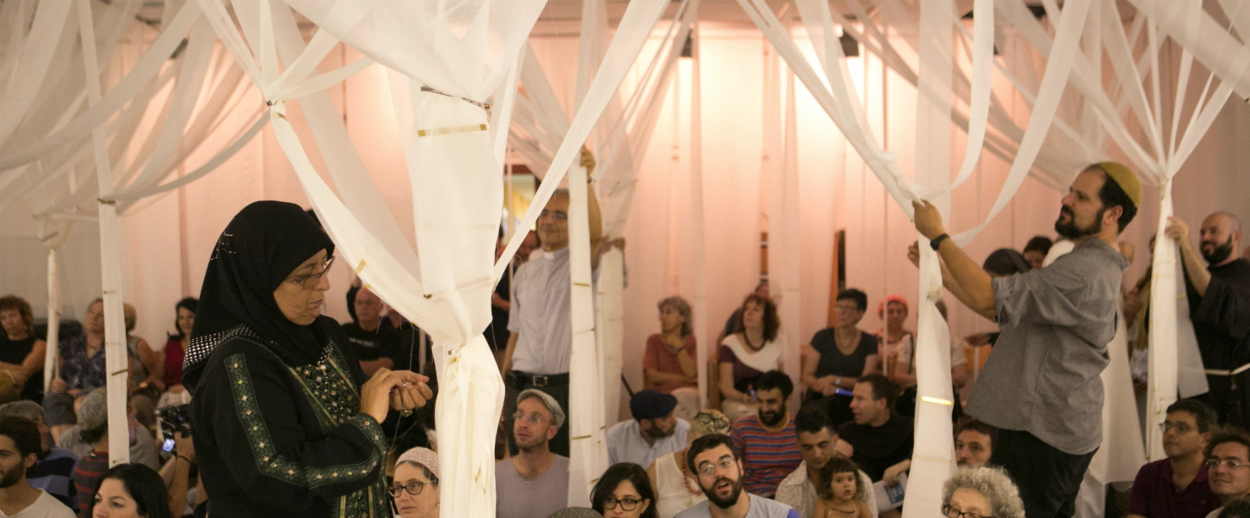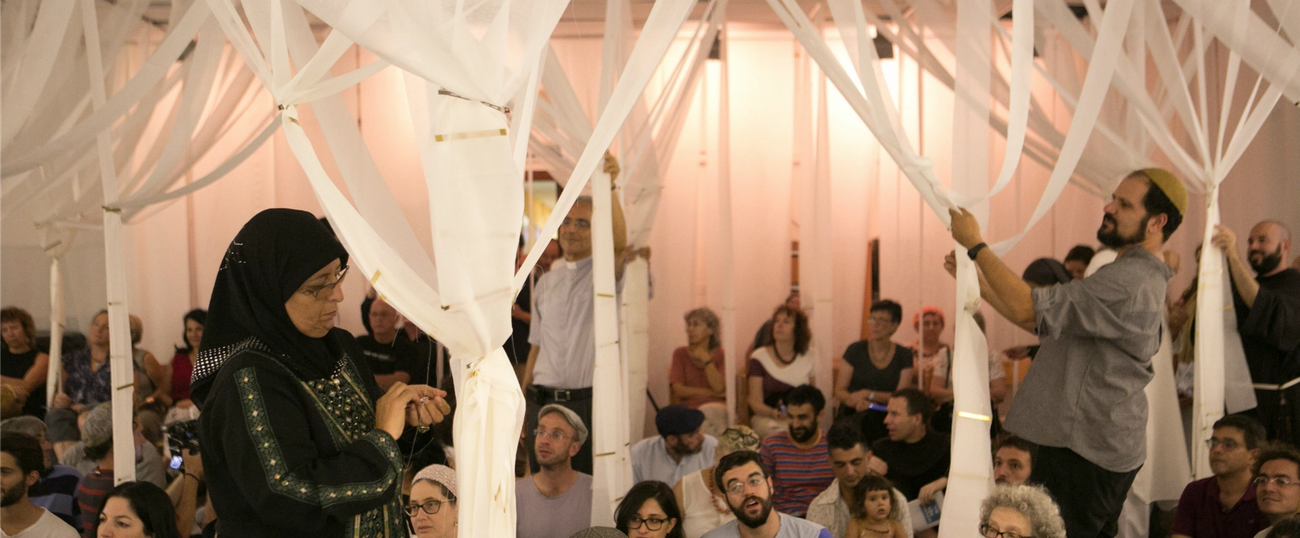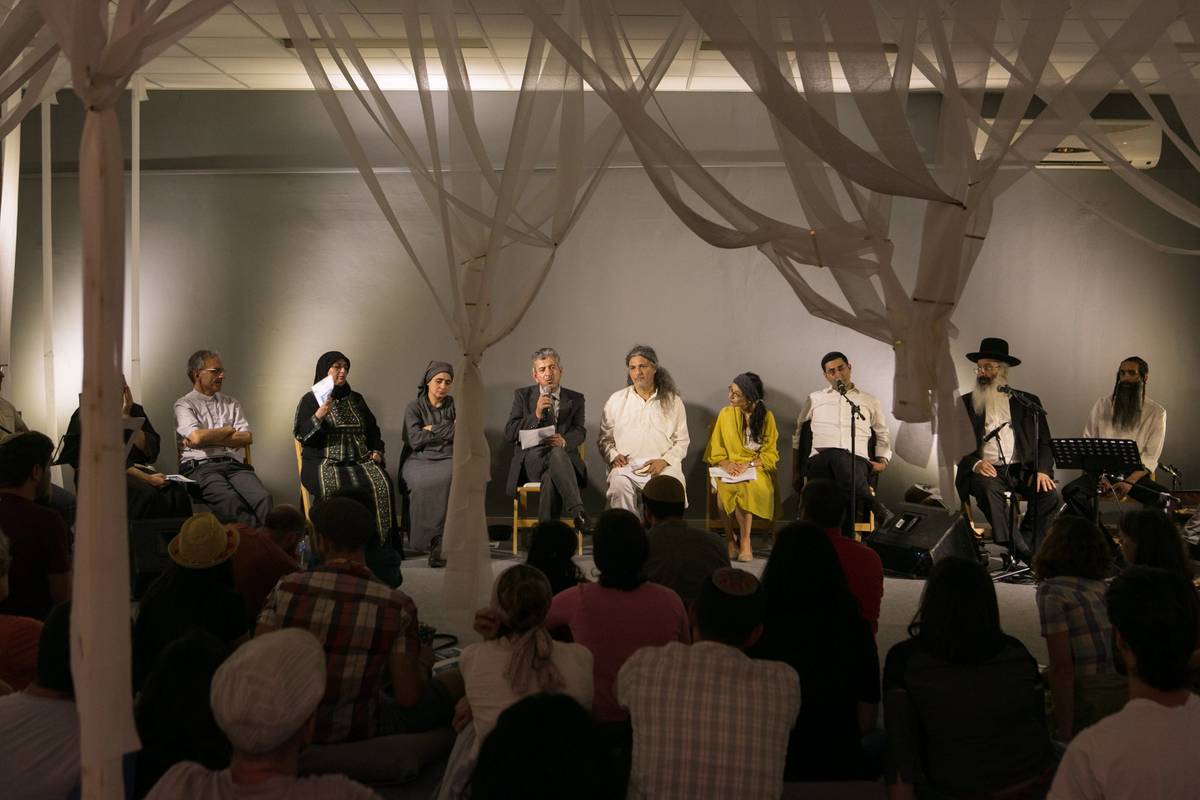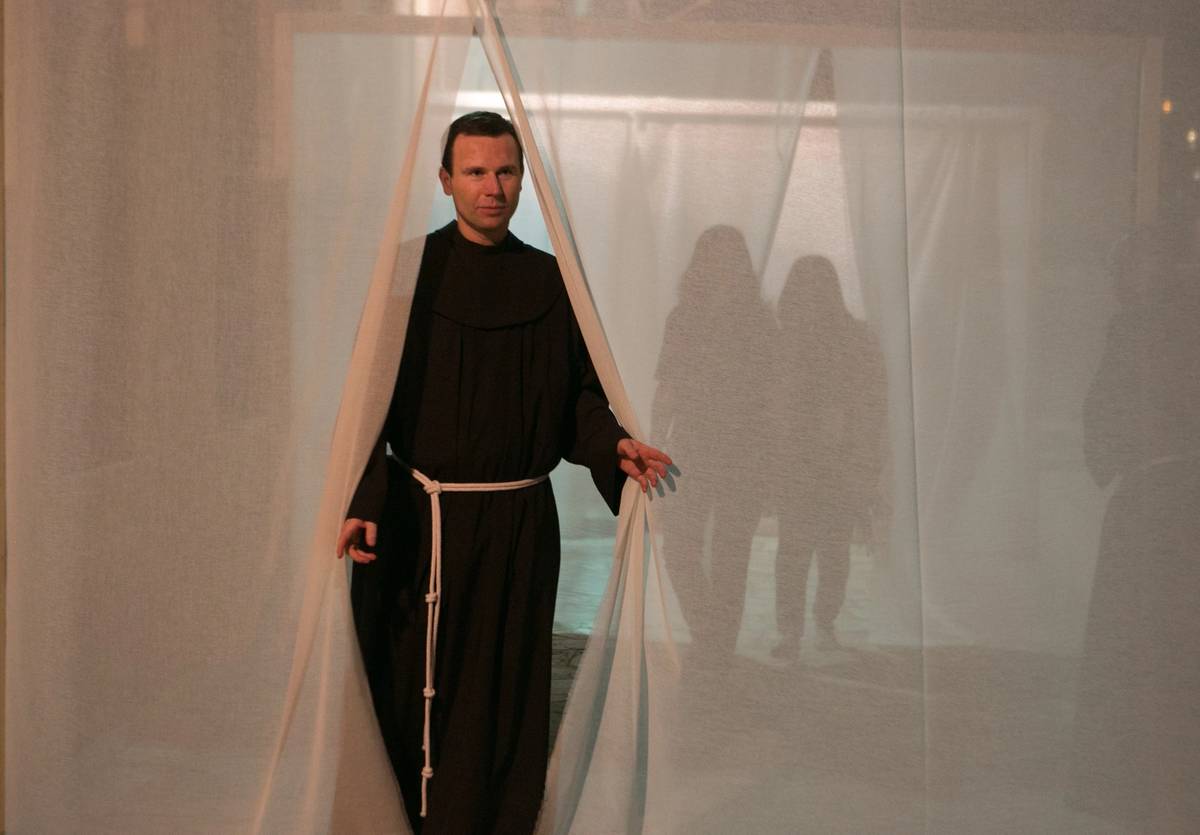In Jerusalem, a Prayer Space for All—for One Week
The ‘Amen’ project, part of Jerusalem’s Mekudeshet Festival, will host Muslim, Jewish, and Christian prayers services this weekend, along with a bevy of other cross-cultural events




The walls of Jerusalem’s Hinnom Valley—a narrow, sloping ravine that was once the site of biblical hellfire and idol worship, and remains the very epicenter of east and west, Jew and Arab, and all things combustible in modern-day Israel—are jutting sheets of inhospitable stone. But now, at the valley’s soft green center, you’ll also find a meeting point where Jews and Arab picnic together, shepherds meander with their flock, and young couples snuggle in the sunshine.
This week, it’s also the site of a modern-day Jerusalem miracle: a communal house of prayer, called “Amen—A House of Prayer for All Believers,” for Jews, Christians, and Muslims alike. Together. At once.

On Monday, the prayer space, located inside Louis and Tillie Alpert Youth Music Center, opened its doors for a meditation on each religion’s idea of “oneness,” spliced with festive, live music and communal reading of scriptures. Some 70 worshippers sang and read together in a rehearsal hall that has been transformed, thanks to Israeli designer Tal Erez, by hundreds of movable sheer white panels hanging from the ceiling, each inscribed with holy words from the Koran, Torah, and Christian bible.
The timing for the prayer house—a joint project of the Jerusalem Season of Culture, Jerusalem’s Kehilat Zion congregation, and local Muslim and Christian leaders—falls smack between the beginning of the Jewish month of Elul, the period of time before the Jewish High Holidays, and Eid al-Adha, a Muslim holiday that marks the end of the Hajj to Mecca. Organizers said planning took eight months.
“None of us could believe it would be so easy,” said Rabbi Tamar Elad Applebaum, a Masorti rabbi and the founder of Kehilat Zion, a nondenominational worship community in Jerusalem welcoming Jews of all faiths and backgrounds. Applebaum spearheaded the creation of “Amen” alongside Yair Harel, the artistic director of the New Jerusalem Orchestra. (Harel is famous for bringing piyyut (Jewish liturgical poetry) into the contemporary music scene.) “The prophets told us that one day we would all sit together,” said Applebaum, “and now it’s the day.”

“Amen” is being produced as part of the Mekudeshet (“Sacred”) Festival of the Jerusalem Season of Culture, a month-long, city-wide program of dance, music, and learning focused on reminding Jerusalemites that their city, so battered from months of stabbing attacks and political stand-offs, is, at its core, sacred. Jerusalem, of course, is a holy city to Muslims, Jews, and Christians, and the organizers hope that by bringing followers all three religions together to pray, they will prove that the city, just like this small physical space, can be peacefully shared.
The project said Applebaum, hinges on a key decision to have each religion rotate as host of a day’s worth of prayers, rather than create a week of blended interfaith services. After spending a week teaching each other about their faith inside of the “Amen” venue, clergy and worshippers—the public included—are invited to attend Muslim prayers on Friday, a Jewish Shabbat service on Saturday, and finally, a Sunday Catholic Mass.
The “Amen” project has attracted sone prominent names from each faith. Additional partners of the “Amen” project include Rabbi Dov Zinger, who leads the Orthodox Mekor Chaim Yeshiva in Jerusalem; Sheikha Ibtisam Mahameed, a Palestinian who counsels Arab women in need and promotes interfaith encounters; Sister Esther Salib; and Father Rafic of the Saint James Vicariate for Hebrew Speaking Catholics in Israel. They were joined by a handful of other like-minded religious leaders, including Sheikh Ihab Balha, a Sufi leader who lives in Jaffa and will lead a Sufi ceremony on the idea of love, as well as a Whirling Dervish performance, later in the week.
“All Muslims have a piece of them that is also Jewish and also Christian,” Balha said at the end of the evening. “When I see a Jew pray, it makes me pray harder. It makes me closer to my own religion.”
Asked if “Amen” will have an impact beyond this week, Applebaum said yes. “It’s very small and it’s very modest,” she said. “Not all of of Jerusalem is here. But some of Jerusalem is here, and that’s all we need to begin with.”
Related: Borges in Jerusalem
Debra Kamin is a Tel Aviv-based writer. Her work has been published in The New York Times, Variety, Foreign Policy and TheAtlantic.com.